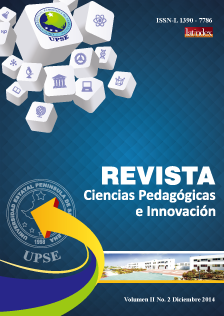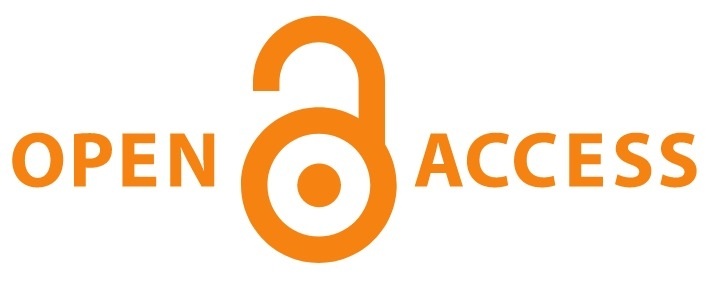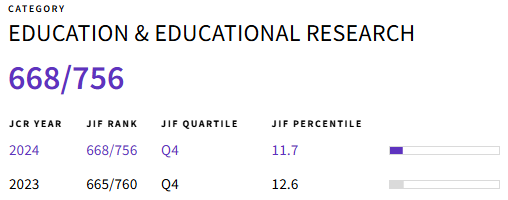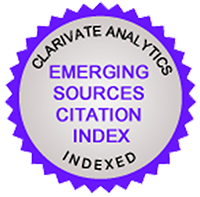Teaching sciences in higher education: the work as professionals in investigation and education.
DOI:
https://doi.org/10.26423/rcpi.v2i2.56Keywords:
epistemology, philosophy, science, research, educationAbstract
Encouraging critical thinking to generate scientific knowledge focused on innovative decision making and doing research through multidisciplinary work is one of the starting points to produce science; however, several limitations are found for its development. The objective of this article is to provide epistemic tools for the teaching of natural and social sciences, to foster better student learning and professional training in the field of scientific research from our performance as researchers and university professors. In this sense, a dialectic-historical methodology was carried out to develop the sciences, the complex systems and their associate concepts, interdisciplinary research and epistemological pluralism, management of ecosystems from the complexity of systems for the application of such renovating concepts to the exercise of the aspects of research and teaching at the university. We conclude that the philosophical basis of science, together with the different epistemological horizons, allow us to have a holistic vision of several topics related to our work as professionals in research and education. And in spite of the limitations to develop science from the university, promoting an educational practice to encourage quality scientific-technical formation is an integral and necessary task so that students can respond to the professional challenges of society.
Downloads
References
Piaget, J.. Intellectual evolution from adolescence to adulthood. Human Development. 1972 15 (1):1-12.
López, J, Nelson, E.. La de construcción curricular. Bogotá: Cooperativa Editorial Magisterio. 2001. 140p.
Chavarría J., E. Salavarría y H. Chiriboga, Diagnóstico de la Investigación Científica y Perfiles de Líneas de Investigación para las Facultades, Escuelas y Carreras de la UPSE. La Libertad. 2007.34p.
UNESCO). Aprender a conocer. (1995- 2010.
Losee ,J. A Historical introduction to the philosophy of science, Fourth Edition. Oxford University Press. 1972.
Hempel, C. Philosophy of natural science. Englewood Cliffs. N.J. Prentice Hall. 1966.
Ashby, W.R. Principles of the self-organizing dynamic system. Journal of General Psychology. 1947.37:125-128.
Kant, E. Crítica a la razón pura. Madrid. Alfaguara. 2000. Nota de Kant en página 52.
Hume, D. An Enquiry Concerning Human Understanding. Chicago: Open Court Publishing Co., 1927.
Lorenzano, P. La teorización filosófica so - bre la ciencia en el siglo XX (Y lo que va del siglo XXI). Discusiones Filosóficas. 2011. 12(19):131- 154.
Popper, K.L. Conjeturas y Refutaciones, el desarrollo del conocimiento científico. Barcelona: Paidós. 1994. 264p.
Kuhn, T.S.: The Structure of Scientific Revolutions. Chicago, University of Chicago Press. 1962
Popper, Karl. La ciencia normal y sus peligros. En Crítica y crecimiento del conocimiento. Lakatos y Musgrave. (eds.). Barcelona. Grijalbo. 1975. 81p.
Lakatos, I. La metodología de los Programas de investigación científica. Editorial Alianza. Madrid. 1993.321p.
Laudan, L. Progress and Its problems. Berkeley. California. University of California. Press. 1977.
Feyerabent, P. Contra el método. Barcelona. Ariel. 1981.
Feyerabend, P. Realism and the historicity of knowledge. The Journal of Philosophy 1989.86(8): 393-406.
Miller, T., Baird, T., Littlefield, C., Kofinas, G., Chapin, F., Redman, Ch. Epistemological pluralism: Reorganizing interdisciplinary research. Ecology and Society. 2008.13(2):46.
Aguerrondo I. La calidad de la Educación: Ejes para su definición y evaluación. Organización de Estados Iberoamericanos OEI.
Gunderson, L.H., Holling, C.S. Panarchy: Understanding transformations in human and natural systems. Cap. I: In search of a theory of adaptive change. Island Press. 2002.207p.
Andrade, R., Cadenas, E., Pachano, E., Pereira L., Torres, A. El paradigma complejo. Un cadáver exquisito. Universidad de Chile. Cinta moebio. Nº. 14. 2002.
CEAACES. Informe de Rendición de Cuentas – Año 2013. Quito, Ecuador: CEAACES, 2014.
Chapin, F., Kofinas, G., Folke, C. Principles of ecosystem stewardship. Resilience-Based Natural Resource Management in a Changing World. Springer Science.New York. USA. 2009.
Fernández-Ríos, Luis. Interdisciplinariedad en la construcción del conocimiento. Innovación Edu - cativa. 2010.
Guillén Celis, Jenny Matilde. Estudio crítico de la obra: “La Educación encierra un tesoro”. Informe a la UNESCO de la Comisión internacional sobre la educación para el siglo XXI, presidida por Jacques DelorsLaurus, 14(26):136-167. Enero-abril. 2008
Jorge Gonzáles, María Elena; Arencibia, Jorge Ricardo. El pensamiento psicológico y pedagógico de Jean Piaget. Revista Cubana de Psicología. Cuba. 2003. 20(1): 50-58.
Kay, J., Boyle, M., Regier, H., Francis, G. An Ecosystems approach for sustainability: Addressing the change of complexity. Futures. 1999.
Lamas, M., Canalias, S., Santa María, G. Modelo alternativo para el mejoramiento de la actividad científico-investigativa en la Facultad de ciencias sociales y de la salud de la UPSE. Revista Ciencias Pedagógicas e Innovación. Universidad Estatal Península de Santa Elena UPSE. Vol. 1. Nº 2. Junio. 2013.
March, J. Nuevos fundamentos de racionalidad ambiental a partir del análisis epistemológico de la evaluación del impacto ambiental. Cinta moebio. Diciembre. Universidad de Chile. Santiago, Chile. 2005
Nosnik, Abraham y Javier Elguea. La discusión sobre el crecimiento del conocimiento científico en el cuento de la filosofía de la ciencia. Estudios-filosofía-historia-letras.1985.
Padrón, J. Tendencias epistemológicas de la investigación científica en el siglo XXI. Cinta moebio. Universidad de Chile. Santiago, Chile. 2007.
Perales Javier.Desarrollo Cognitivo y Modelo Constructivista en la enseñanza – aprendizaje de las ciencias. Revista Interuniversitaria de Formación del Profesorado. 1992.
Pérez Tamayo Ruy. ¿Existe el método científico?: Historia y realidad. Primera edición. La ciencia para todos. México. 1998.
Toledo, U. Ciencia y Pseudociencia en Lakatos: La falsación del falsacionismo y la problemática de la demarcación. Cinta moebio. 1999.
Verdugo, C. La Filosofía de la Ciencia de Popper. Ensayo. Estudios Públicos.1996.-Vidal, R. El giro epistemológico hermenéutico en la última tradición científica moderna. Cinta moebio. 2011.
Downloads
Published
Issue
Section
License
El titular de los derechos de autor de la obra, otorga derechos de uso a los lectores mediante la licencia Creative Commons Atribución-NoComercial-CompartirIgual 4.0 Internacional. Esto permite el acceso gratuito inmediato a la obra y permite a cualquier usuario leer, descargar, copiar, distribuir, imprimir, buscar o vincular a los textos completos de los artículos, rastrearlos para su indexación, pasarlos como datos al software o usarlos para cualquier otro propósito legal.
Cuando la obra es aprobada y aceptada para su publicación, los autores conservan los derechos de autor sin restricciones, cediendo únicamente los derechos de reproducción, distribución para su explotación en formato de papel, así como en cualquier otro soporte magnético, óptico y digital.

















